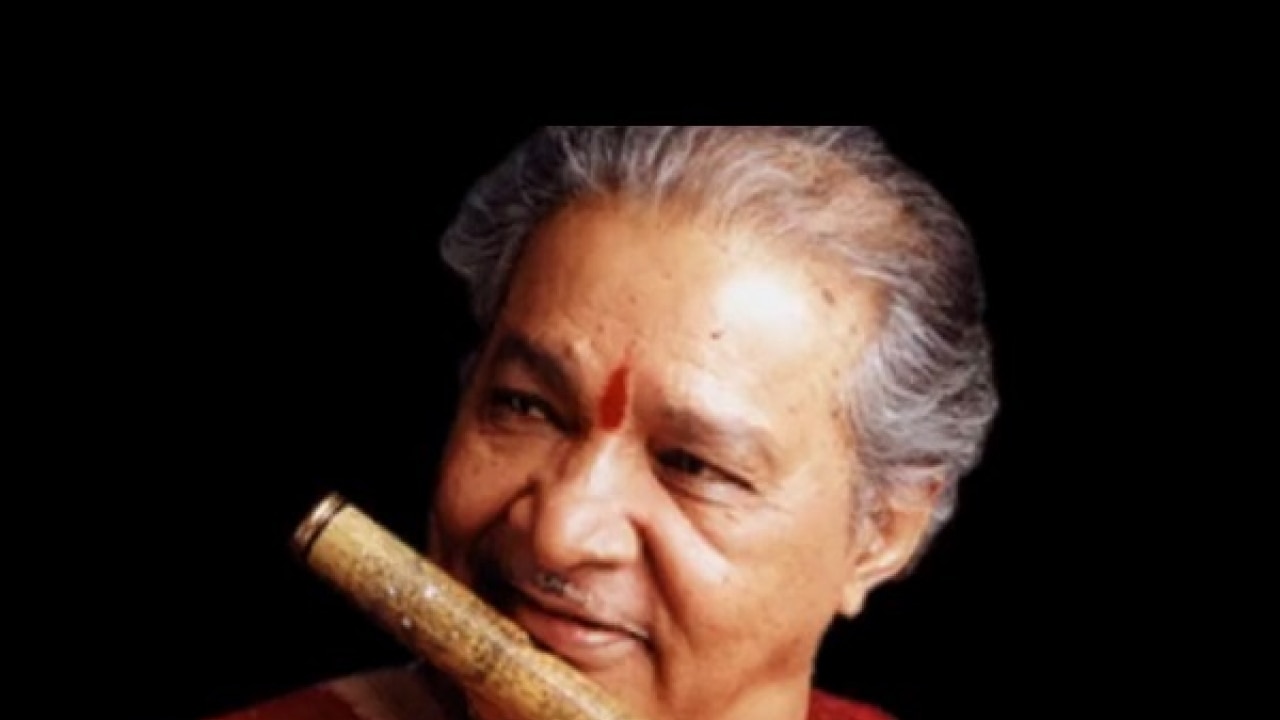
How does one describe, in words, the melody produced by a flute. The notes that hit the soul at the right spot, every time.
A thin of bamboo, with holes drilled in, which produces the most amazing melody – the flute is a musical instrument that has divine connotations. Krishna, in his childhood, when he herded cows by the banks of the Yamuna, played the flute. We are told there are three main types of flutes he played : The Venu, a small flute, about 6 inches long, with 6 holes in it. It also lead to Krishna being called Venugopal – (Go meaning cow, Pal meaning nurturer, and Venu the player of the venu).The Murali, a longish flute, about 18 inches, with 4 holes at varying distances from each other. He is also called Murali. The Vamsi, a fifteen inch flute, with 9 holes in the body.
(You can read more about flutes, and their link with the stories around Krishna here)
But it is not just Hindu mythology that talks about the flute. The Greek god Pan, the god of shepherds, is said to have been a fabulous flautist. Native American cultures too have a link with the other world through the music produced by the flute.
There is a certain soulfulness, a certain longing, a kind of loneliness that is associated with the flute. A little something that melts the heart. At the same time there is a sense of the heart being hugged, the soul being massaged and of pain falling away when you hear the flute played by a maestro. And, in modern times, there is no maestro better than Hariprasad Chaurasia when it comes to playing melodies on the flute.
Listen to Raga Des, Song of Krishna, played by Hariprasad Chaurasia:
Hariprasad Chaurasia was born on July 1, 1938, into a family of wrestlers. His mother died when he was six, and the young lad grew up in the akhada. His father had dreams of his son following his footsteps, but young Hariprasad was never interested in the ancient form of wrestling, kushti. He said,
"I was not any good at wrestling. I went there only to please my father. But maybe because of the strength and stamina I built up then, I'm able to play the bansuri even to this day".
He came from a rather traditional family that believed that music was practised by courtesans. It was an era, when that was the reigning belief, and many of the outstanding musicians of that time were from the devdasi or the courtesan tradition. Hariprasad used to lie to his family to go and learn music – he would tell them he was going to the temple, when he was busy following his passion for the bansuri.
But like all musicians of that era, driven by passion and longing for music, Hariprasad was in the search for a guru who would open up the universe of music for him. He found her in Annapurna Devi, the daughter of Baba Allaudin Khan and a musician in her own right. Many believe that she was the finest musician of her generation. Incidentally, Baba Allaudin Khan’s students included Ravi Shankar (who Annapurna married and divorced), Nikhil Banerjee and Pannalal Ghosh, to name a few.
Annapurna Devi made Hariprasad wait for three years, to judge his dedication to music, and then accepted him as a student. Her only condition was that he unlearn what he had hitherto learned, and start with a clean slate – approaching music with total bhakti as a complete novice. Hariprasad Chaurasia agreed, and says of this:
"To show her I was serious. I decided to switch hands. I used to play with my right-hand, I switched to the left and believe me it is sheer torture. It’s like if I tell you that instead of walking straight, walk backwards for the rest of your life without looking back. I used to cry in sheer agony."
He, later, said of her, "Shrimati Annapurna Devi is my Guru. She is my mother, she is my teacher. She is everything for me. She is more than a goddess."
That was the beginning of the journey that led to one of the greatest flautists of all times.
Listen to Hariprasad Chaurasia play Raga Sindhu Bhairavi in live concert:
When you hear Hariprasad Chaurasia play the flute, there is that sense of other worldliness, an almost spiritual and divine connect. The maestro himself admits to this.
"I am playing for the audience. But between us, I can see Lord Krishna. And the audience can also see him."
When you play for the passion of music, the music itself becomes an end in itself. Music itself becomes God, religion and the path to divinity. As he points out, it is not about rituals or public observances but a love and bhakti that transcends the material world.
"I almost never go to temples. I don't find the time. I'm not religious in that sense. My religion is my music. Lord Krishna is my God. Whenever I want to pray, whenever I want to meditate and concentrate, I take my flute. I can feel God. The feeling is difficult to explain, but I feel lost when I'm in it."
Here is a recommended playlist of his performances:
Raga Kirwani
Raga Chandrakauns – by Hari Prasad Chaurasia and Zakir Husain, live at Sawai Gandharva
Raga Bhupali
Raga Hansadhwani
Divine Flute
For more information on this great artist visit his site, here.